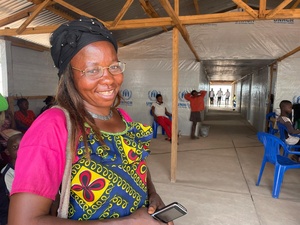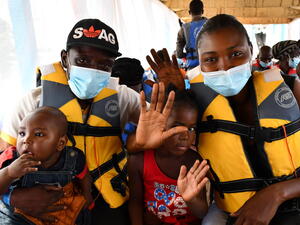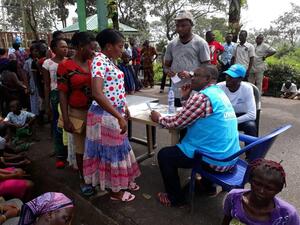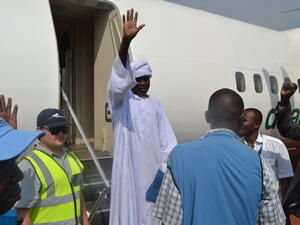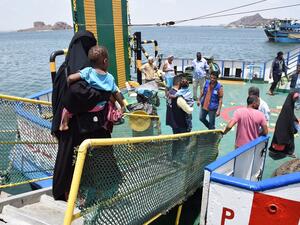Somalia: over 2,000 repatriated from Ethiopia in last week
Somalia: over 2,000 repatriated from Ethiopia in last week
More than 2,000 refugees have repatriated from eastern Ethiopia's Aisha camp back to north-west Somalia in the last week. On Monday, more than 1,000 refugees left Aisha aboard a convoy of 56 buses and trucks headed for their home village of Harirat in neighbouring Somalia's Awdal District. There are now fewer than 12,000 Somalis in the camp, which UNHCR hopes to close in the coming months. The first convoy carrying 970 refugees left Aisha last Wednesday.
UNHCR plans two voluntary repatriation convoys each month from Aisha, and believes that all the camp's residents will be gone by September. We will then close Aisha, which was created 16 years ago amidst Ethiopia's own civil war following a massive refugee influx that saw more than 400,000 Somalis crowd into neighbouring Hartisheik camp. Hartisheik, a name synonymous with hunger and thirst, was briefly one of the largest refugee camps in the world until other sites could be opened to relieve pressure on the site and its sparse water sources.
For their return, UNHCR gave the refugees a small amount of cash for transportation, as well as blankets, cooking sets, sleeping mats, tarpaulins and hygiene supplies to help them restart life at home. Each family also received nine months' supply of food from the UN World Food Programme.
These returnees will join some 670,000 refugees who have gone back to north-western Somalia over the last 13 years, either on their own or with UNHCR assistance. This year, the agency plans to repatriate 35,000 Somalis to various parts of the country, carefully measuring the pace of returns against the desperately poor country's ability to absorb so many people. Some 4,200 Somalis have left camps in neighbouring Djibouti since February in a series of convoys.
UNHCR has identified Somalia as one of eight countries in Africa where it expects to see significant refugee returns over the next five years, if security remains stable and donor countries ensure adequate amounts of rehabilitation and reconstruction assistance.
In order to help stabilise the situation inside north-western Somalia and to assist communities receiving returnees, UNHCR has implemented 174 quick impact projects in the water, health, education and transport sectors over the last two years. These programmes have helped, along with similar projects initiated by a host of partner agencies, but Somaliland's needs are huge.
In late February, UN agencies and non-governmental organisations operating in Somalia appealed for $118 million to assist the war-torn Horn of Africa nation this year. UNHCR's share of the 2004 consolidated appeal amounts to more than $5.7 million. A similar consolidated appeal for $70 million a year earlier netted only half the requested amount, pointing towards the continuing challenge agencies face in helping Somalia meet its most pressing needs.
In order to ensure a safe return for Aisha's Somali refugees, a UNHCR-funded road crew recently undertook grading and spot repair works. They also ensured that the area was checked for land mines left behind from the conflict 20 years ago when Somali forces invaded eastern Ethiopia, an attack that presaged the civil war and the eventual collapse of the Siad Barre government in Mogadishu.


